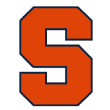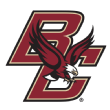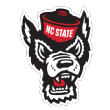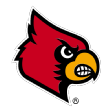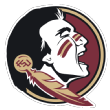ACC Atlantic season preview -- Clemson's dominance will continue, but who else will make noise?

The 2020 college football season has already been the strangest since the end of World War II, and it hasn't even officially begun yet. The threat of the coronavirus brought a stop to all spring practices in March, and teams have only recently begun to resume voluntary workouts with safety measures in place. Every school has its own set of protocols, and we don't yet know how things will play out if a large cluster of players gets sick, or an entire team has to quarantine during the year, or if a coach gets really sick, or anything else. The unknowns are limitless.
We do know one thing, though: They're clearly going to try to play football this fall. So while we wait to find answers for at least some of the unknowns, let us tentatively resume our division-by-division 2020 preview series.
We (re)start with the ACC, which has been by far the weakest power conference for the past two seasons. The Atlantic Division became Clemson's own romping grounds five years ago, and that should remain the case. Can a surprise contender emerge? Can Florida State begin to look like Florida State again? Can Syracuse and NC State rebound after sudden and stark collapses?
Jump to: Syracuse | Wake Forest | Boston College | NC State
Louisville| Florida State | Clemson
Syracuse
Head coach: Dino Babers (23-26, fifth year)
2019: 5-7 (2-6 in ACC), 77th in SP+
2020 projection: 5-7 (2-6), 93rd
Five best returning players: FS Andre Cisco,KAndre Szmyt, CB Ifeatu Melifonwu, RG Dakota Davis, NB Trill Williams
Dino Babers knows how to make a moment resonate. His first Syracuse team won only four games, but one of the wins featured a postgame celebration that went viral. His second team also won four, but one came against Clemson. The speech after that one was pretty good too.
Despite a 0.333 win percentage, Babers had moved to the top of the Coach You'd Want Your Son To Play For power rankings. Then, in 2018, his Orange won 10 games for the first time in 17 years. His stock could not have been higher.
Things fall apart pretty quickly sometimes.
For starters, Syracuse got a little too much credit for its 2018 performance. The 10-win breakthrough happened in part because of the ACC's sudden mediocrity. While the Orange's special-teams unit was elite (and would remain so in 2019), they ranked only 40th overall in SP+. Then Syracuse lost quarterback Eric Dungey, the engine of the offense, and both starting tackles. Well-touted quarterback Tommy DeVito took over, but a combination of slow decision-making and poor blocking resulted in his taking 44 sacks. The run game offered next to nothing, and the offense fell to 89th in offensive SP+.
On defense, star safety Andre Cisco missed three games, as did corner Ifeatu Melifonwu. In all, only five defenders put in more than 600 snaps while 22 logged at least 100, a ratio that suggests instability. What was supposed to be a breakthrough D fell to 75th. Syracuse finished with as many wins (five) as blowout losses.
DeVito is back, and his line is more experienced, but now the Orange have to deal with detonation in the skill corps. Running back Moe Neal and receivers Trishton Jackson and Sean Riley, by far the most efficient options on the field last year, are all gone. Wideout Taj Harris is boom-or-bust, and this offense has almost no proven entities.
Defensively, the safety corps of Cisco, Eric Coley and Trill Williams should rank among the league's best, and Melifonwu returns as well. This is probably a good area of strength to have considering new defensive coordinator Tony White's history with the 3-3-5 defensive structure. Still, all five of those 600-snap guys are gone, and depth is as big a question mark as it was last year. Tackle Josh Black is good, and linebackers Mikel Jones and Tyrell Richards have havoc potential, but as with the offense, proven entities are at a minimum.
Even the best unit, special teams, takes a hit with the loss of punter Sterling Hofrichter. Kicker Andre Szmyt returns, though.
The Orange don't have to overachieve a ton to return to bowl contention, at least. SP+ projects them a ghastly 93rd, but seven games are projected within a touchdown. If they rank merely in the 60s, that could get them back to .500 or better. But Babers is now in charge of the least proven roster in the Atlantic Division. A lot of surprise breakthroughs will be required for this program to get back on track.
Wake Forest
Head coach: Dave Clawson (36-40, seventh year)
2019: 8-5 (4-4 in ACC), 57th in SP+
2020 projection: 4-8 (3-5), 81st
Five best returning players: DE Carlos Basham Jr., WR Sage Surratt, WR Donavon Greene, LB Ryan Smenda Jr., DT Tyler Williams
Dave Clawson is in newfound territory. The 52-year-old has proved himself as one of college football's true master builders. He ripped houses down to the studs and rebuilt something wonderful at Fordham (1-AA quarterfinals in 2002), Richmond (semis in 2007) and Bowling Green (2013 MAC champs), and he needed just three seasons to bring Wake Forest back to relevance. But while he has now been a head coach for 20 years, he hadn't stayed at one place for more than five seasons until last fall. This is his first true maintenance job.
He has quite a bit of maintenance work to do in 2020. After jumping to 31st in SP+ in 2017, the Deacs have ranked just 57th in each of the past two years. They were as high as 40th and 7-1 in 2019 before injuries derailed their progress and they finished 8-5. Still, after bowling just six times from 1980 to 2015, the Demon Deacons have now bowled four times in a row.
Reaching five straight might be tricky. Quarterback Jamie Newman transferred to Georgia, and both the receiving corps and offensive line have been wrecked by attrition.
There's hope in youth, however. Sophomore quarterback Sam Hartman has thrown for nearly 3,000 yards over parts of two seasons (he redshirted last year), sophomore running back Kenneth Walker III was more dangerous than departed starter Cade Carney last year, and redshirt freshmanDonavon Greene, one of Clawson's most touted recruits, caught 13 passes for 249 yards and two scores in a four-game audition. Combined with 1,000-yard receiver Sage Surratt, that's a pretty good starting point. If the line holds up, so too might the offense.
The Wake defense peaked at 32nd in defensive SP+ under Mike Elko but has slipped to 51st, 64th and 69th since his departure for Notre Dame. (He's now at Texas A&M.) The rebound should begin in 2020. Of the 17 defenders to log at least 250 snaps last year, 14 return. That includes defensive end/steamroller Carlos Basham Jr. (17 TFLs, 11 sacks), tackle Tyler Williams, a fun linebacking corps (Ryan Smenda Jr., Ja'Cquez Williams, DJ Taylor), nickelback Traveon Redd and quite a few sophomores who survived getting thrown into the deep end last year. Wake was sturdy against the run, and now the Deacs should be downright good in that department.
That "14 of 17" figure does not include either starting cornerback, however. Essang Bassey and Amari Henderson combined for five interceptions and 21 pass breakups last year, and while senior Ja'Sir Taylor returns, there aren't any known entities after that.
The schedule might be the biggest obstacle to extending the bowl streak. Wake draws Miami in cross-division play and takes on Notre Dame and Appalachian State in nonconference play. SP+ projects Wake as a favorite in only four games and as a double-digit underdog in five; that doesn't offer much margin for error. Never underestimate a Clawson squad, but this one has more questions to answer than normal.
Boston College
Head coach: Jeff Hafley (first year)
2019: 6-7 (4-4 in ACC), 92nd in SP+
2020 projection: 5-7 (2-6), 70th
Five best returning players: TE Hunter Long, LB Max Richardson, RB David Bailey, LT Tyler Vrabel, DE Brandon Barlow
Taking over a mediocre-to-decent program is in some ways harder than taking over a bad one. At least in the bad one, you usually get carte blanche to make the changes you think need making. At a decent program, you inherit more talent, but you also have to maintain a higher level of play while retooling in at least a couple of areas.
Jeff Hafley takes over for Steve Addazio, who mastered the art of mediocre-to-decent football, winning either six or seven games six times in his seven seasons. Hafley inherits quite a few interesting pieces from a solid, run-heavy offense, but he also inherits an uncertain QB situation and a defense coming off its worst performance in 40-plus years.
Hafley crafted a dominant Ohio State defense in 2019 and has a wonderfully diverse résumé -- five years in sub-FBS college football, seven in FBS and seven in the NFL. He appeared to show preference for guys with similar experience when hiring assistants.
New offensive coordinator Frank Cignetti Jr. hasn't coached in college since he was with Hafley at Rutgers in 2011, but at their best, his turn-of-the-2010s Pitt and Rutgers offenses had sturdy run games and mixed short, high-efficiency passing with some solid deep shots. In 2009 at Pitt, for instance, Dion Lewis rushed for 1,799 yards, while leading receiver Jonathan Baldwin averaged 19.5 per catch.
Receivers Kobay White and Zay Flowers are explosive, if all-or-nothing, and tight end Hunter Long combined 18.2 yards per catch with a 58% success rate. Plus, running back David Bailey should be an extremely capable replacement for AJ Dillon, and the line features up to four all-conference candidates.
Does BC have a quarterback? Ask the NCAA. Sophomore Notre Dame transfer and former blue-chipper Phil Jurkovec somehow continues to wait on the verdict for his immediate-eligibility waiver request. If it's denied, the ceiling might be low. Leading passer Dennis Grosel completed only 48% of his passes, and redshirt freshman Sam Johnson III is, well, a redshirt freshman.
New defensive coordinator Tem Lukabu spent time with Hafley both at Rutgers and in the NFL. He was linebackers coach for a dynamite Mississippi State defense in 2018 before briefly jumping back to the pros last season.
After years of strong defense -- the Eagles were in the top 25 in defensive SP+ 10 times during the span of 2004-17 -- they collapsed to 110th last year. Linebacker Max Richardson is nearly a Luke Kuechly-level star, and the line could be pretty disruptive, but the pass defense was an utter disaster and doesn't have any proven pieces beyond maybe corner Brandon Sebastian. There are probably no quick fixes there.
BC plays at home for five of its first six contests, and only one is against a projected top-40 team. Granted, "home field advantage" might not exist this year with potentially crowd-free environments, but the odds of starting at least 4-2 or so are strong. Things get trickier late, though, and SP+ gives the Eagles only a 38% chance of finishing 6-6 or better.
NC State
Head coach: Dave Doeren (47-42, eighth year)
2019: 4-8 (1-7 in ACC), 94th in SP+
2020 projection: 6-6 (3-5), 62nd
Five best returning players: LG Joe Sculthorpe, RB Zonovan Knight, RT Justin Witt, NT Alim McNeill, LB Louis Acceus
In 2019, NC State went from "What if?" to "What now?"
Dave Doeren's Wolfpack came achingly close to a massive breakthrough in 2017-18. They enjoyed two 9-4 seasons, but considering the NFL talent (State had seven players drafted in 2018 alone), the crumbling state of the ACC and four combined one-score losses, they could have expected so much more.
Then 2019 happened. The offense lost quarterback Ryan Finley and three star linemen; the Wolfpack shuffled between three QBs, handed the ball mostly to freshman RBs and watched their scoring average plummet by nearly two touchdowns per game. The defense was young and constantly banged up and gave 27 guys at least 89 snaps. The Wolfpack played six bowl teams and went 0-6 with an average score of 42-15. Their No. 94 SP+ ranking was their worst since 1971.
It's rare to bounce back from a nosedive this steep. Doeren will attempt to do it with a new offensive coordinator (Tim Beck, most recently of Texas), an offense that is far more experienced, and a defense that returns playmakers but not a lot of depth.
Beck did pretty good things with Sam Ehlinger at Texas last year, but it's hard to assert that he's got an Ehlinger at his disposal in Raleigh. Sophomore Devin Leary and junior Bailey Hockman combined for a 50% completion rate and a 102.6 passer rating, absolutely horrid numbers. They also averaged only 3.2 yards per non-sack carry.
If Beck can engineer mega-progress at QB, the rest of the supporting cast could be decent. Zonovan Knight and Jordan Houston posted solid rushing numbers for freshmen, and while junior Ricky Person Jr. has backed up none of his blue-chip hype, he's also battled constant injuries. The line could become a strength -- it produced at least mediocre results despite constant shuffling and bad quarterbacking and returns seven players with starting experience. The receiving corps has a lot of guys who've randomly looked the part. Sophomore Devin Carter could become a star.
The defense doesn't return as much experience as you'd like -- only three of last year's top eight linemen and three of the top seven DBs return. But second-year coordinator Tony Gibson has potential sophomore stars in linebackers Payton Wilson and Drake Thomas and big corner Malik Dunlap. Junior tackle Alim McNeill is active and safety Tanner Ingle is a steadying presence, but these players all have to take star turns for the defense to improve significantly after last year's downturn.
An optimist would look at the Pack's 2020 schedule and notice only three opponents projected in the top 40. If a far more experienced NC State team rebounds toward its historic levels, there are lots of potential wins.
A pessimist, meanwhile, would note that only two opponents (Delaware and Liberty) are projected worse than where State fell last year. This was a stunning collapse, and while Doeren's track record suggests a rebound, there are almost no proven entities on which to lean.
Louisville
Head coach: Scott Satterfield (8-5, second year)
2019: 8-5 (5-3 in ACC), 63rd in SP+
2020 projection: 6-6 (4-4), 41st
Five best returning players: WR Tutu Atwell, LB Rodjay Burns, QB Micale Cunningham, LB Dorian Etheridge, CB Chandler Jones
Scott Satterfield's first season at Louisville was a study in contrasts. On offense, everything he and coordinator Dwayne Ledford touched turned to gold. They installed a run-heavy offense quite different from that of departed head coach Bobby Petrino, and it ignited. Freshman running back Javian Hawkins rushed for 1,525 yards, sophomore receiver Tutu Atwell caught 70 balls for 1,276 yards and the Cardinals leaped from 102nd to 29th in offensive SP+. Despite a pretty low tempo, they scored at least 34 points in seven games and won all seven.
Defensively, things remained in Petrinoland. The Cardinals were 99th in defensive SP+ in his last season and ranked 100th in 2019. Corners Chandler Jones and Anthony Johnson held their own, and outside linebacker Rodjay Burns was a missile in run defense. But the spine of the attack -- defensive tackle, inside linebacker, safety -- was ineffective. The Cardinals ranked 88th in success rate allowed; while they were dangerous on passing downs, they couldn't force many. They gave up at least 20 points to every FBS opponent on the schedule.
The Cardinals went 8-1 against teams that finished outside of the SP+ top 40, often winning in prolific fashion -- 41-39, 62-59, 56-34, etc. Louisville played four top-40 teams, however, and went 0-4 with an average score of 44-17. (It's fitting that the Cardinals start 2020 projected 41st.) The defense was overwhelmed, and the offense, forced to prove it could pass, couldn't always do so.
That makes Year 2's stakes pretty clear. The offense returns Hawkins, Atwell and quarterback Micale Cunningham. First-round tackle Mekhi Becton is gone up front, but the line still features five players with starting experience. The run game is innovative and consistent, and if you sneak an eighth man into the box, either the passing game will light you up, or a runner will torch you on the edge. (Against eight-man boxes, Louisville was fourth in FBS in success rate and first in big-play rate.) Whether it's more effective in obvious pass situations remains to be seen.
Most of last year's defensive playmakers -- Jones, Burns, Johnson, linebacker Dorian Etheridge, pass rush specialist Monty Montgomery -- return, but the two most disruptive linemen are gone, and safety play has to improve without starting free safety Khane Pass. The experience level alone should produce a little bit of improvement, as should a pretty low bar, but it's hard to assign too high a ceiling here.
The schedule is friendly. Even if the Cards can't solve their top-40 issues, there are only four on the slate, along with six opponents projected 57th or worse. They are projected favorites in five of their first six games and could create quite a bit of buzz even if they get thumped by Clemson in Week 2. To one-up last year's results, they'll need to improve quite a bit defensively, and while there's no reason to simply assume that will happen, it's still true that Satterfield immediately made Louisville fun and interesting again, and that should remain the case this fall.
Florida State
Head coach: Mike Norvell (first year)
2019: 6-7 (4-4 in ACC), 58th in SP+
2020 projection: 7-5 (5-3), 26th
Five best returning players: WR Tamorrion Terry, DT Marvin Wilson, LB Amari Gainer, CB Asante Samuel Jr., FS Hamsah Nasirildeen
Talking about Florida State confirms all the ways in which writing a football-specific preview is all sorts of dissonant in this moment.
New head coach Mike Norvell's first offseason at FSU was, like everyone else's, derailed by the coronavirus; like most teams, the Seminoles got in only a few spring practices before quarantine rules took effect. If there's any negative effect on teams for this, you figure teams with new coaching staffs will be hit the hardest.
Meanwhile, when Norvell exaggerated the extent to which he had talked to his players about George Floyd's death and the proceeding racial unrest, those players, led by defensive tackle Marvin Wilson, called him on it. A hasty team meeting seemed to quell the outrage, but the incident proved that this is a heightened time of awareness, and coach-player relationships are evolving rapidly.
So yeah, it's a little weird to talk about football dynamics. But we'll try.
Norvell took what Justin Fuente had been building at Memphis and magnified it. His ability to cultivate a versatile skill corps and create an infinite number of winnable one-on-ones made the Tigers a top-20 offense, per offensive SP+, for three straight years. Plus, with his hire of Marshall's Adam Fuller as defensive coordinator last year, his defense leaped to 40th in defensive SP+. Memphis won 30 games in his last three years and jumped to 17th in overall SP+ in 2019.
Norvell inherits a team that is now on its third coaching staff (and fourth offensive coordinator) in four years, but he and offensive coordinator Kenny Dillingham should have a lot of fun with versatile talents like receivers Tamorrion Terry and D.J. Matthews and running back (and Texas A&M transfer) Jashaun Corbin. The line, a total nightmare in 2018, still isn't incredibly proven but shouldn't be disastrous.
Quarterback James Blackman's development has been hampered significantly by all the turnover, but he has shown upside. In parts of three seasons, he's thrown for 5,079 yards and has produced a passer rating over 150 eight times. He's somehow still a junior and has time to develop further. If he doesn't, Norvell signed a pair of freshmen, including blue-chipper Chubba Purdy, who could get a shot.
In the past two years, the Noles have fallen from sixth to 61st in defensive SP+. Youth and injury conspired against the 2019 unit; 25 players ended up taking at least 100 snaps, and 19 are scheduled to return. Experience, combined with full-strength versions of Wilson, end Joshua Kaindoh and safety Jaiden Lars-Woodbey, could result in solid improvement for Fuller, who followed Norvell to town. Sophomore linebacker Amari Gainer could be a star too.
Because of experience and solid recruiting, SP+ projects FSU to improve a good amount, and six games against teams projected 62nd or worse should assure bowl eligibility. SP+ actually gives the Noles a nearly 1-in-3 chance of going 9-3 or better. At least, that's how they'd be projected in a normal plane of existence.
Clemson
Head coach: Dabo Swinney (130-31, 13th year)
2019: 14-1 (8-0 in ACC), fourth in SP+
2020 projection:11-1 (7-1), third
Five best returning players: QB Trevor Lawrence, RB Travis Etienne, DT Tyler Davis, DE Justin Foster, CB Derion Kendrick
It was only five years ago, but it feels like a lifetime. Heading into the 2015 season, Clemson was very good but still looking up at the elite. Dabo Swinney's Tigers had, over the previous three seasons, won 32 games with an average SP+ ranking of 14.3, but we were asking a lot of questions about whether they could rise further. Quarterback Deshaun Watson was a walking injury risk who had torn his ACL late that previous November. Star offensive coordinator Chad Morris had just left. Star defensive coordinator Brent Venables had to completely rebuild his defensive front seven. Plus, Florida State had won 24 ACC games, and three league titles, in a row.
It might feel like things never change in college football. Clemson is proof that's not true.
Watson guided the Tigers to two national title games, winning the second. After a transition year at QB in 2017, Trevor Lawrence took over and has taken them to two national title games, winning the first. When he leaves, the reins will go to either Blue Chipper A (Taisun Phommachanh) or Mega Blue Chipper B (D.J. Uiagalelei). Recruiting continues to improve. Venables is somehow still there.
We ask no more questions of Clemson; we simply make assumptions. The Tigers lost one of the best defensive players in college football (Isaiah Simmons), plus three starting defensive backs (including corner A.J. Terrell, a first-round pick), four starting offensive linemen and offensive co-coordinator Jeff Scott. They just found out that all-world receiver Justyn Ross might not play football again. That's a lot. And they're still probably going to be second, at worst, in the preseason polls.
That's not to say the above issues can't derail the season, at least momentarily. The Tigers do have to play at Notre Dame and Florida State (if "at" actually means a disadvantage of sorts this year). They are indeed now without both Ross and second-rounder Tee Higgins in the receiving corps, meaning a couple of younger options -- blue-chippers like sophomores Joe Ngata and Frank Ladson Jr. or freshman E.J. Williams -- have to be ready quickly. So too will some young defenders at outside linebacker and in the secondary. Clemson's pass defense was as good as it's ever been last fall, and it will almost certainly regress a bit this fall.
In a conference lacking in proven stars, though, Clemson still has more than everyone else. Lawrence and running back Travis Etienne (2,046 combined rushing and receiving yards and 23 TDs) give the Tigers the best backfield in the game. Receiver Amari Rodgers is a year further removed from knee surgery. The defensive line is loaded once more, corner Derion Kendrick is still a hell of an anchor for the secondary, and young defenders like Simmons replacement Mike Jones Jr. will likely become household names once given the opportunity.
In five years, we've gone from asking a lot of questions to assuming Clemson has the answers on the field. There's no reason to expect that to change now.
